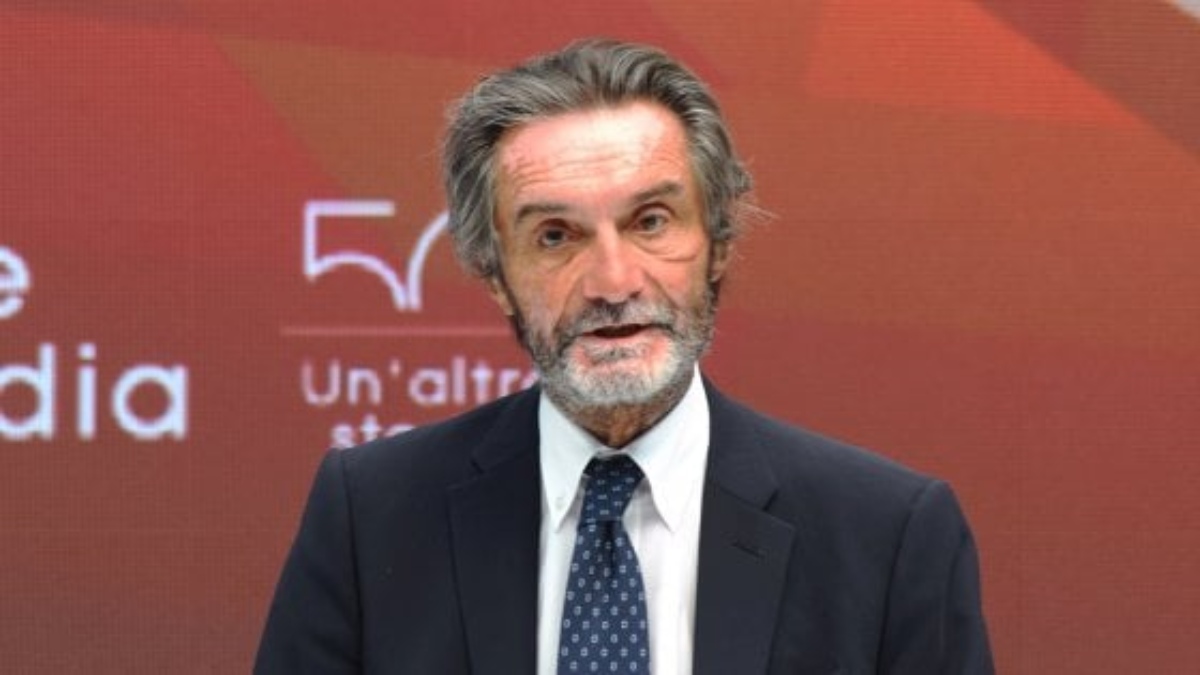Lombardy is one of the 20 administrative regions of Italy, in the northwest of the country, with an area of 23,844 sq km. About 10 million people live in Lombardy, forming more than one-sixth of Italy’s population, and more than a fifth of Italy’s GDP is produced in the region, making it the most populous, richest and most productive region in the country. It is also one of the top regions in Europe for the same reason.
On 13 February, Mario Draghi became the 30th Italian Prime Minister since the birth of the republic in 1946. The former President of the European Central Bank, Draghi is one of the leading figures in the European Union. He has come into office after the Conte government, which was faced with the most challenging year since the end of WWII, due to the fight against the Covid-19 pandemic. For the first time in a decade, the new government is being led by an executive coalition tasked with fostering the country’s recovery. Lombardy, Italy’s economic locomotive, will be playing a strong role in the new Draghi government.
The following are excerpts of interview with Attilio Fontana, President of Lombardy:
Q. President Fontana, this is the second turning point for both Italy and Lombardy, following the first phase of the pandemic in February 2020. In a historic moment, Italy’s new government has given key ministerial roles to Lombard members of your party, specifically those of economic development and tourism.
A. The unprecedented viral wave has affected almost 3 million people in Italy and over 500,000 of them in Lombardy. However, the country has been working to cope with it and continues to move forward. We are entering a new political phase and we realise that ideological barriers must be overcome in order to construct a plan that will work for the whole country. Lombardy will certainly be an important part of it, with no fewer than 9 of the 23 ministers in the new government coming from our region. Clearly, as the most economically active and most international region, we feel confident about that.
Q. How has the global health plan worked in Lombardy and how will the vaccine plan be implemented?
A. It is clear that having transformed a part of the Milan Exhibition Centre into a Covid hospital has proved a successful strategy. Here, at the Fiera Hospital, we have built a large alliance to implement the Lombard model for vaccinations against Covid-19. Our plan is to vaccinate millions of people in six months. And, as Vice-President Letizia Moratti defined it, this important alliance also includes the manufacturers and the trade unions, all aiming to restart Lombardy. This is a historic event, which will save the lives of thousands of people, aiming to save lives and to strengthen the livelihoods.
Q. What kinds of policies will we be seeing in terms of Italy’s post-Covid recovery?
A. The first step is to trust our citizens. The approach is to carry them with us in advance and then carry out checks, randomly or across the board. The public administration will have to implement a radical simplification.
Q. The economic situation requires some kind of Marshall Plan for Lombardy. How can the example of Lombardy be applied in other contexts?
A. The budget of a public entity is divided between investments and current expenditures. The latter is the most limited, as 99% of those expenses are already allocated at the beginning of the year, and it is not possible to incur a debt. Therefore, we have decided—because we cannot intervene directly to support credit and support companies, except with limited resources—to intervene on the investment side. So, we have allocated 4 billion euro ($4.9 billion) in a plan, which is very important for our region, to make substantial investments in our territory. That will include public works—initiatives for which municipalities have been waiting for a long time—tangible and intangible infrastructure, major interventions in terms of digitisation. Certainly, India also knows a great deal about making investments in digitization and intangible infrastructure, and our goal is the same, we also want to choose a direction for the future of our country. On the one hand, investing in research and innovation means providing immediate resources to the economy, on the other hand it also means having a truly international development perspective in terms of how that is invested.
Q. What unites Lombardy and India as it is ahead in many technological sectors in Italy, and among the vanguard in Europe?
A. We are greatly pleased to know that India after reaching a peak of 11 million citizens affected, has achieved a great success in Covid-19 management through excellent planning, control and execution in restricting the spread of this pandemic and now the vaccination programme is underway.
Lombardy has always a synergy with Maharashtra area, which is industrially very progressive. There are numerous exchanges in the industrial sectors but I see particular activities in the pharmaceutical and food processing sectors.
I also hope that tourism will become important common ground between India and Lombardy, showcasing India’s cultural heritages and the beauty of this region’s lakes with the qualities of the centre of Milan. The exhibition and conference sector are also one of the points of great interest, but we will also have to understand how to successfully resume this sector again in Lombardy.
Q. Any plan of Lombardy Region for Odisha state?
A. Firstly, I must congratulate the Chief Minister, Naveen Patnaik for developing Odisha in last two decades and making it an investor-friendly region. His corona pandemic management is truly praise worthy. We have great interest of business and industrial collaboration with Odisha primarily in the areas of mining, minerals, metallurgy, agriculture, food processing and textile. I would personally like to be in touch with him in this connection.
Pratapaditya Mishra, Visiting Professor in MBA Department, Utkal University, conducted this interview with the help of Alberto Cavicchiolo and Francesca Bruni—associated with Art Valley, Milan.























